Netflix’s ‘Under Pressure’ doc on the USWNT was supposed to tell the story of a quest for the World Cup three-peat but instead depicts the collapse of a giant… and leaves more questions than answers over the USA’s future
'Under Pressure' was supposed to be the story of the three-peat World Cup champions, but Netflix got the chance to tell a different – and arguably bigger – story: the collapse of a giant.
Netflix's behind-the-scenes coverage of the USWNT's 2023 World Cup was sold as an exclusive look into the team's quest for a third victory on the jump.
But the streaming giant's access was unexpectedly cut short when the US crashed out of the tournament in the round of 16 after a shock penalty shootout against Sweden. Yet Netflix still had something to show.
The four-part docuseries instead had the chance to capture what fans really wanted to understand – the collapse of the USWNT's success – while putting into perspective what the US's role is in the landscape of women's football today .
The series lives up to its title, portraying the pressure the US faced as they entered the tournament as two-time reigning champions, but with much tougher competition than ever before.
Netflix's behind-the-scenes coverage of the USWNT's 2023 World Cup was released on Tuesday
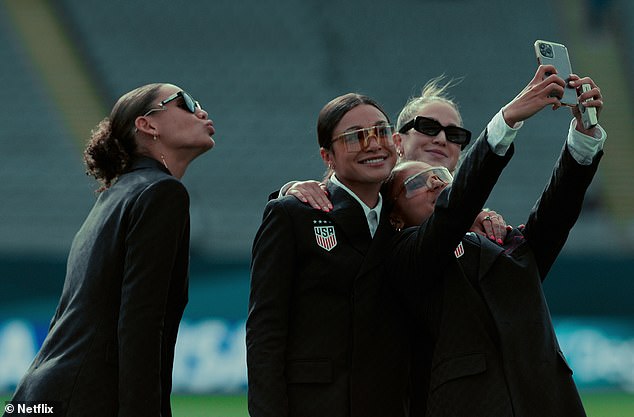
The docuseries followed the reigning champions' shock departure from the tournament in the summer

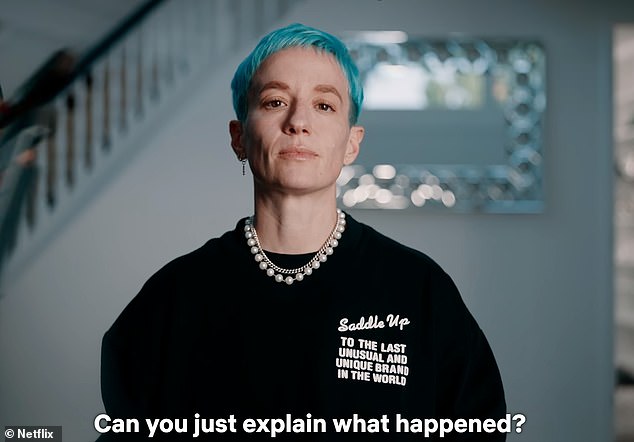
Weaving together the threads of individual characters, from co-captain Alex Morgan balancing en route to a fourth World Cup along with mothering duties, 18-year-old Alyssa Thompson joking about missing large chunks of her senior year as she turns pro , and Lynn Williams clawing On her way back to the US side, the series started by showing how cutthroat the Americans have to be to even make the team.
It also showed the confidence fans have grown accustomed to seeing from the USWNT.
But for all the bravado and claims that it was still on top, the US seemed to know it was facing a whole different level of opposition. Yet somehow they still seemed confused when their battle Down Under began.
It started with just a 3-0 win over Vietnam – a ten-goal drop from their opening game against Thailand in 2019 – and then further frustration over a 1-1 draw with the Netherlands, before the ultimate relief came as they narrowly avoided group came after a 0-0 stalemate against Portugal.
The frustrated Americans were captured and wondered: What happened to us?
Immediately, Megan Rapinoe, Lindsey Horan and Arsenal men's legend Ian Wright were quick to emphasize that the rest of the world had simply caught up; the Americans obviously take credit for the improvement in the women's game.
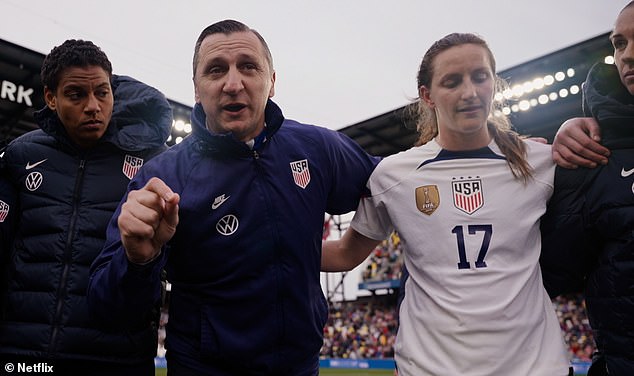
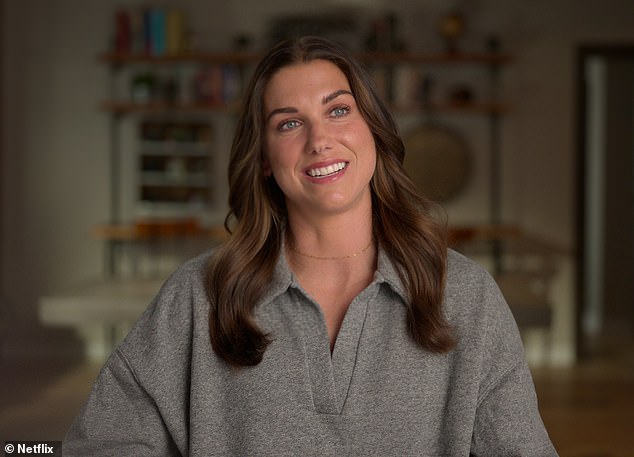
And yet the big questions about how the US itself can maintain the pace didn't come from within the team. There was little soul-searching, but it was their ancestors in the form of the heroic 99ers, Mia Hamm and Julie Foudy, two-time World Cup winners Tobin Heath and Christen Press, and of course the most outspoken, Carli Lloyd.
They rightly asked, “Where is the USA we know?” To which the current players had no answers.
In fact, the final episode, which focuses on the US's shock exit at the hands of Sweden, bizarrely cut from the sobbing US players hugging their families to Kristie Mewis holding the hand of a child in an Australian jersey , on her way to support girlfriend Sam. Kerr, who was still in the tournament with the Matildas.
While it was a moving moment and a common reality within the world of women's soccer, it quickly sent the message that the US was already past its defeat.
This was hardly the high point the series had been building towards and failed to get to the heart of the question fans have been asking since the tournament and expected the series to answer: what did it all go wrong for The United States?
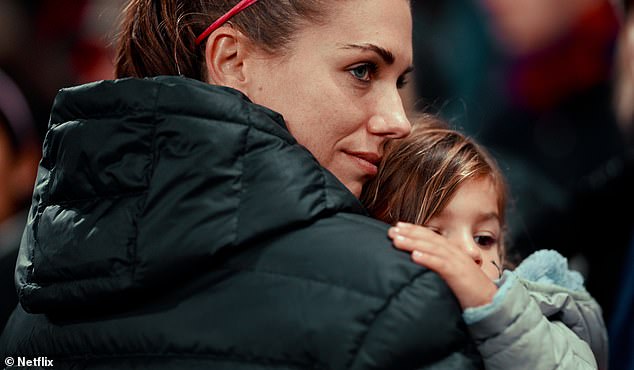
It showed Alex Morgan balancing his way to a fourth World Cup, along with motherly duties
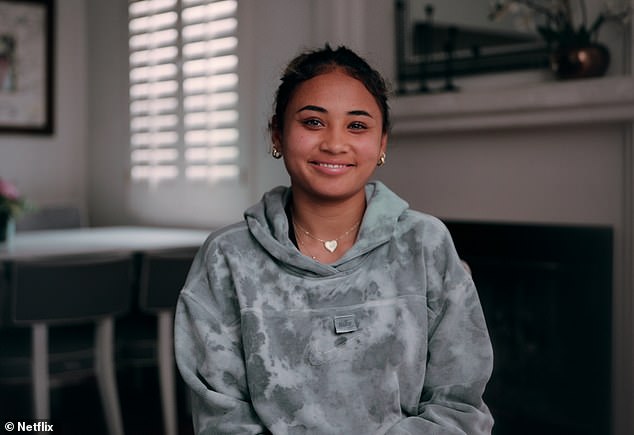
18-year-old Alyssa Thompson joked about missing large chunks of school when she turned pro
Apparently, when it finally came to answering that question, the blame lay mainly with former head coach Vlatko Andonovski, who resigned after the World Cup.
“I don't think we were well prepared to go on and have the success to get the win,” Williams said.
“If you only win three games out of 10, there's no way you can keep that coach going,” she added. '(…) If we are held to this standard, the coaching staff must be held to this standard as well.'
“As captain of this World Cup team, I had a lot of conversations with Lindsey (Horan) and Vlatko, being very honest with him and he was incredibly receptive to that,” Morgan said.
“But I don't know if many other players felt comfortable or vulnerable having the conversations with him that Lindsey and I are having.”
But the players themselves hardly held themselves accountable. The closest to accepting full responsibility was Horan, who said: “Obviously Vlatko gives us the game plan every game, but we are the players on the field.”
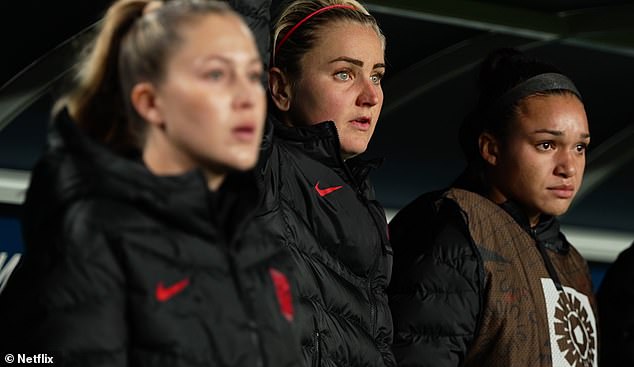
The USWNT suffered a defeat in a penalty shootout against Sweden, resulting in their elimination
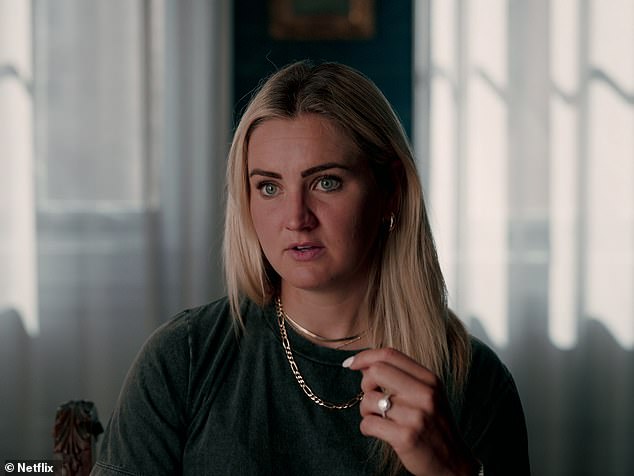
The closest to accepting full responsibility was co-captain Lindsey Horan
In fact, it was the team's former stars who offered the best insight. “I don't think it was all about Vlatko… at all. The players have to bear some of that responsibility,” Foudy said.
Meanwhile, it was the press that provided analysis of the next steps for the USWNT, saying: “The expectation is that the United States Women's National Team will win. If you don't, the program continues and you have to find leadership
'They will delve into coaching, player development, staff, sports science.'
But that was it. A total of twelve minutes were spent dissecting the failure of the USWNT.
The series could have delved further into the postmortem, but instead Netflix chose to focus on what the US has used its World Cup success for before; equivalence.
Things moved very quickly from the US leaving without ever achieving closure to the scandal that rocked women's football after Spain's victory.
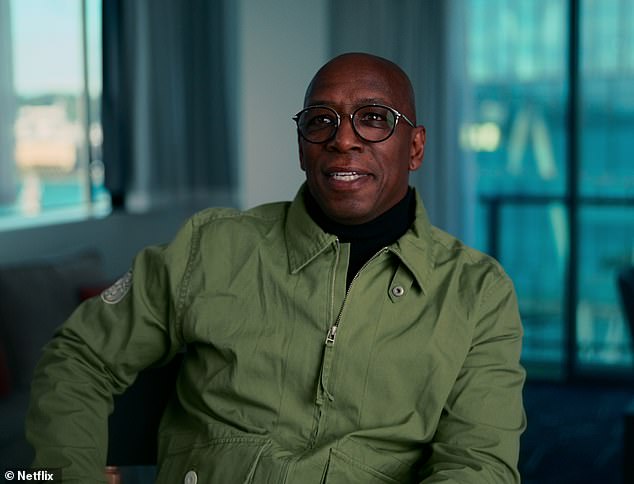
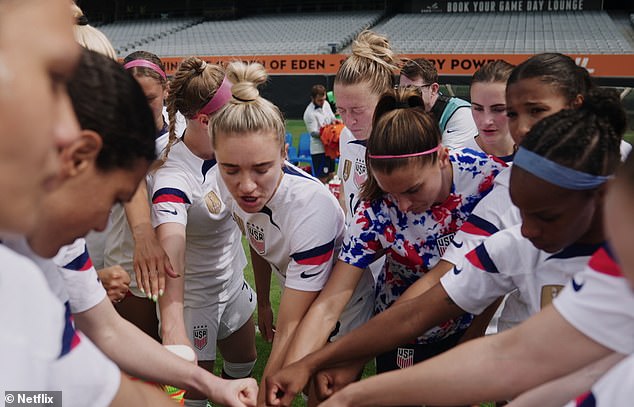
Luis Rubiales, who was then head of the Spanish Football Federation but later resigned and has since been banned from all football-related activities for three years, kissed Spain international Jenni Hermoso on the lips as she accepted the winners' medal.
And the US players compared it to the 2019 USWNT, who used their World Cup victory as leverage for equal pay, claiming that society's reaction to the kiss and subsequent pressure that forced Rubiales to quit was at least a step in was the right direction for equal pay. therapy.
'Under Pressure' did not deliver what was expected: the explosive reaction, Megan Rapinoe's further reflection on her missed penalty and, most importantly, answers about the future.
However, it did provide insight into where the US stands now and what role they play in the grand scheme of women's football after so many years of being the figurehead.
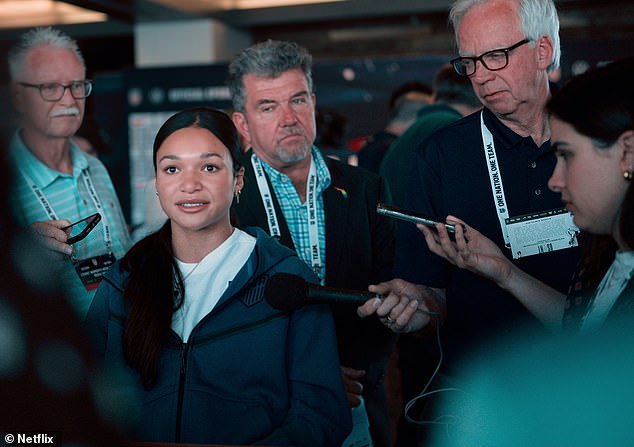
USA and Portland Thorns forward Sophia Smith is seen talking to the media ahead of the tournament
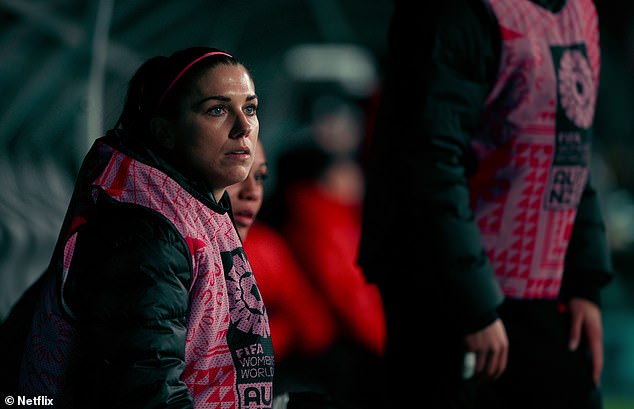
Rather than dwell on his departure, the country quickly turned its attention to what the new era of the USWNT has in store as it competes with the likes of England, Spain, Germany and the Netherlands, who have caught up .
An undoubtedly important subject, but nevertheless the series ultimately gives the viewer the feeling that the US has moved on too quickly, that there is no 'closure' yet as Williams himself said, and despite the fact that there is a new boss in the form of the successful Chelsea manager Emma Hayes, without acknowledging its failures, history has a very good chance of repeating itself for the USWNT.
Rapinoe himself said it in the second episode: “The team's success begs the question: When will they not be as successful as they have been in the past decade?”
Well, the US has shown how easily it can crumble under the pressure of success, now it has to prove how it can handle failure.
